When it comes to superfoods, very few fruits and vegetables have the abilities of a beet. This food helps reduce inflammation in the body and is a great way to add loads of beneficial vitamins and minerals without eating a lot of calories.
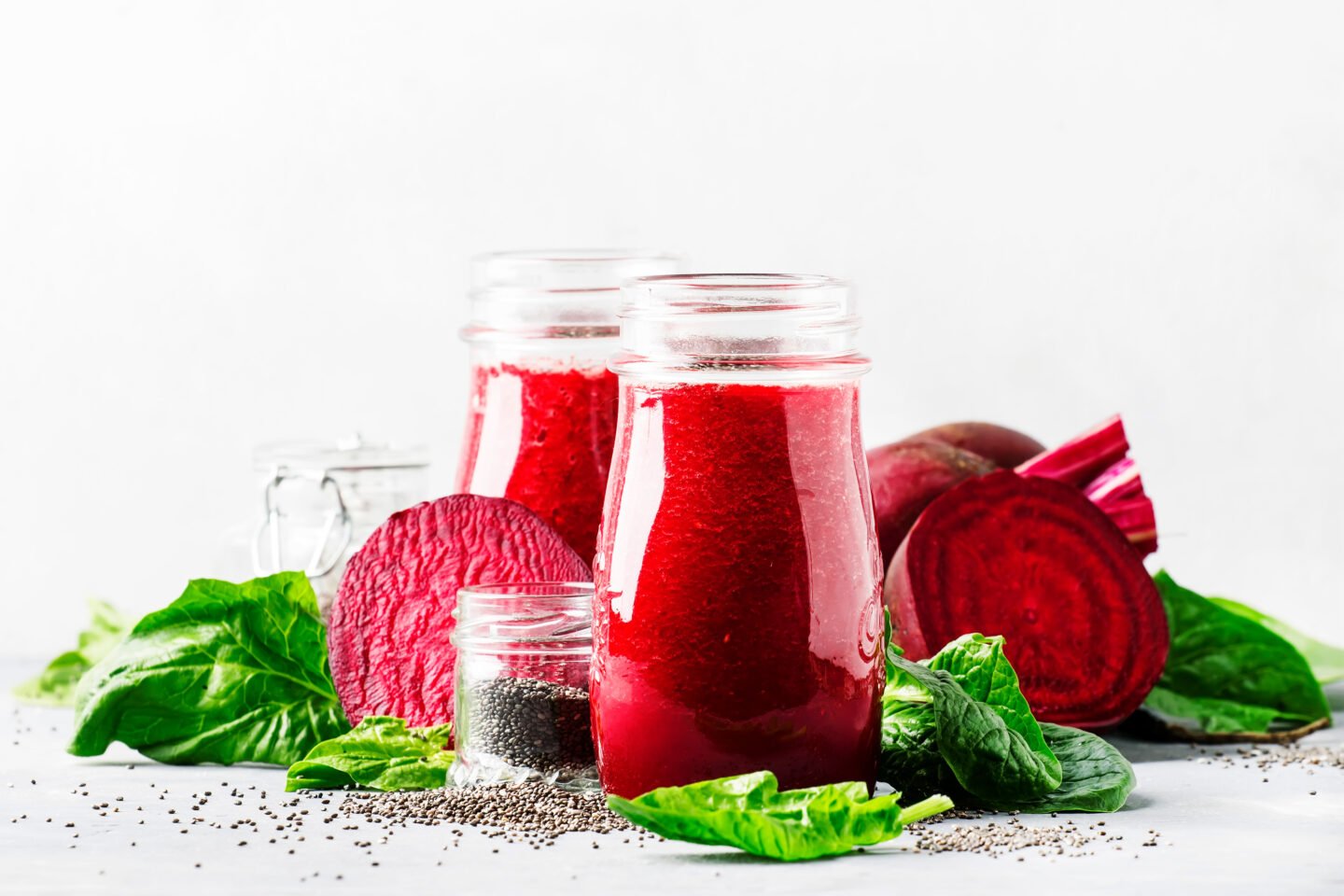
A beet can work wonders left in its raw form, which makes it an ideal additive for juice cleansing. Adding beets to your juice can help you improve your immune system, overall organ health, and even prevent the signs of aging. When done correctly, juicing is a largely beneficial diet that allows your body to rapidly and effectively absorb powerful fruits and vegetables, like beets.
Table of Contents
Juice Cleanses
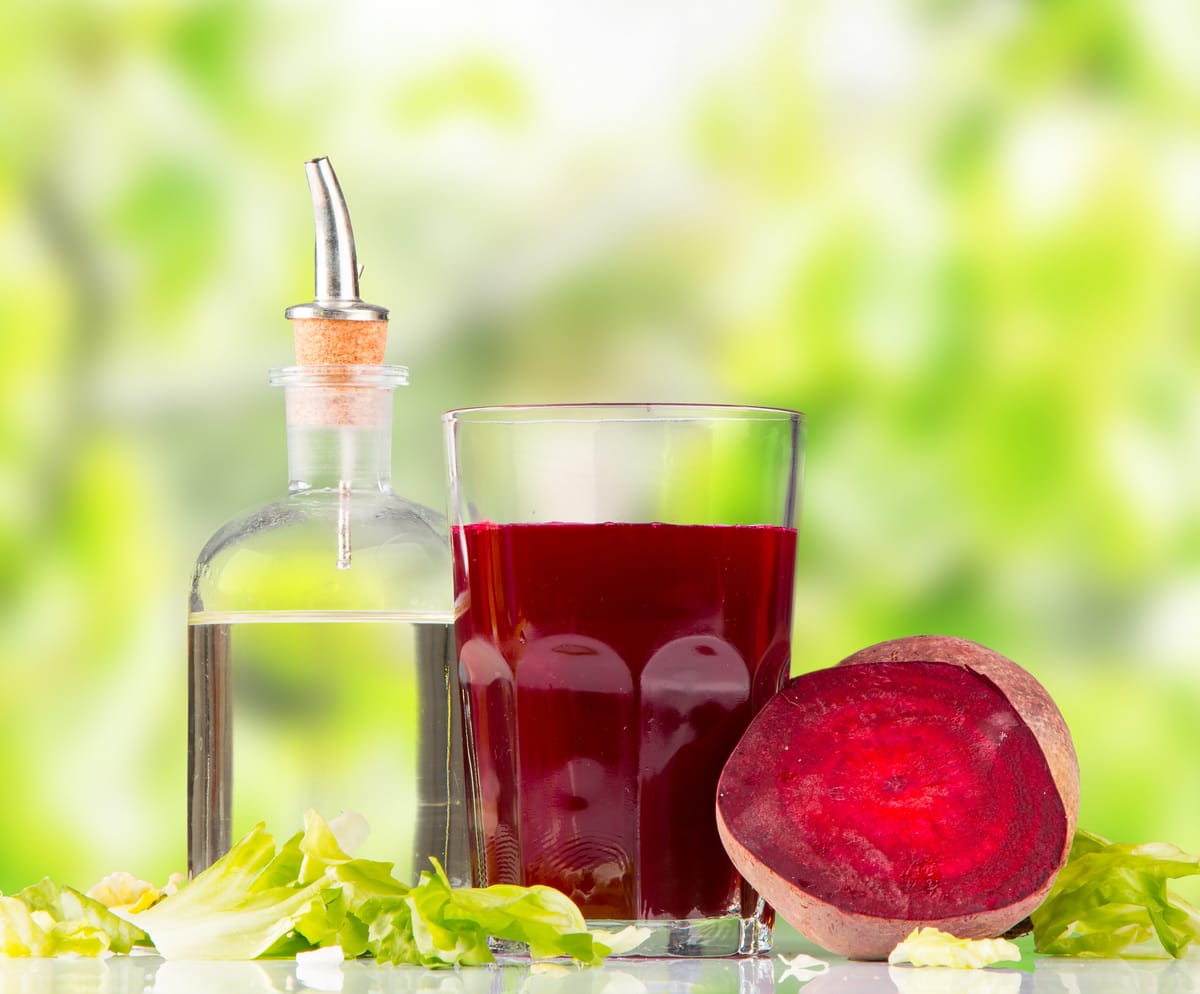
Juice cleanses are a popular diet that people turn to for several reasons. A cleanse is mainly beneficial and gives people an easy way to introduce loads of healthy vitamins and nutrients into the body in an easy-to-digest manner. People choose to partake in juice cleanses to target a specific health problem or improve general and overall health. Starting a juice cleanse can also help you lose weight. Many people choose to partake in a juice cleanse because of the many options available to them with associated health benefits.
There are many types of juice cleanse programs available, with the recipes varying just slightly. For some, a juice cleanse may only consist of drinking pureed fruits, vegetables, and herbs for your meals throughout the day. For others, a juice cleanse may include more smoothie-type drinks instead of just liquid fruit puree. Smoothies will usually include some protein powder or yogurt to make them more substantial. A juice cleanse should only last about three days. Keeping your cleanse relatively short will guarantee you will get the most benefit from your cleanse while also maintaining a healthy diet. Continuing a cleanse for longer than three days may hurt your health.
Why Juice Cleanse?
The most attractive part of a juice cleanse is ingesting a high number of valuable minerals and vitamins extracted directly from raw fruits, vegetables, and herbs. A juice cleanse is a great way to improve overall health and digestive health and target specific ailments. Juice cleanses have been known to help with several conditions, from IBS to eczema, to improving overall digestive health. Starting a juice cleanse is also a great way to lose weight, with many people reporting shedding several pounds with just a three-day cleanse.
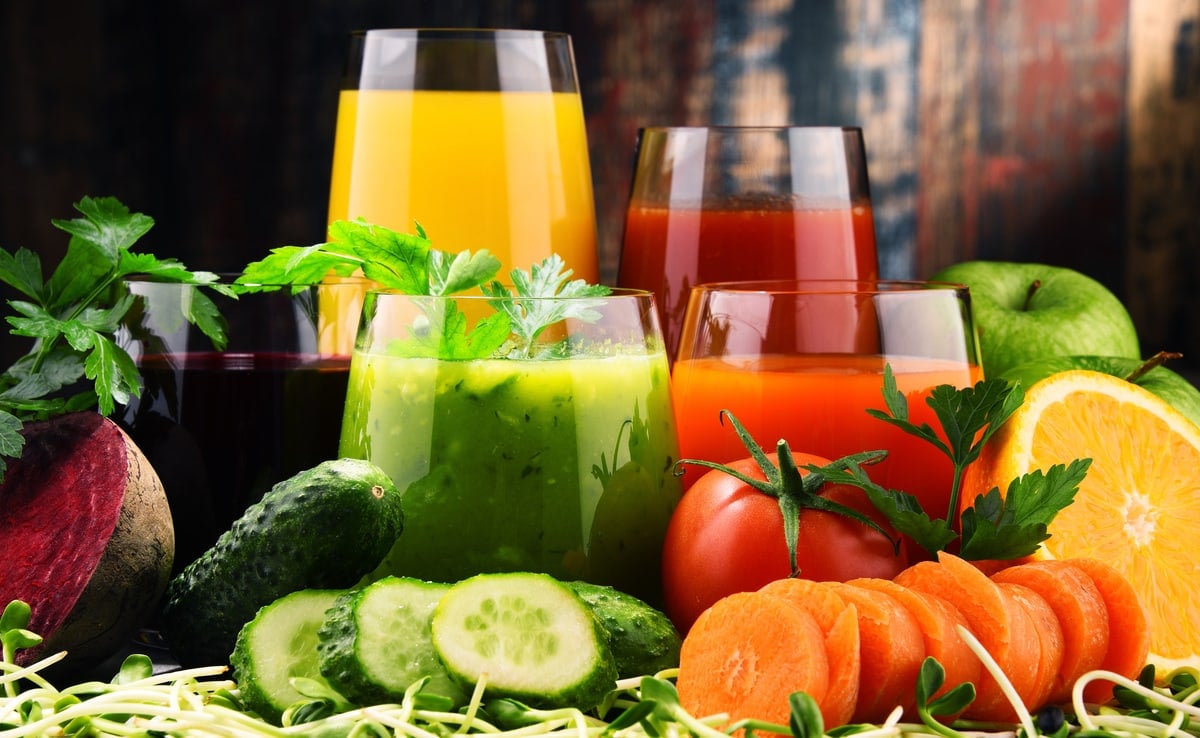
More importantly, though, a juice cleanse promotes a healthy lifestyle and diet. While doing a juice cleanse, you must maintain a very healthy diet, eliminating harmful foods that can make you sick and worsen health conditions. A juice diet consists of only healthy fruits and vegetables and eliminates any processed foods, trans fats, artificial sugars, caffeine, and alcohol, all of which can damage your body.
By removing these toxins from your body and replacing them with healthy minerals and vitamins, you can kick start your digestive system and improve organ health. The associated detox is one of the best benefits of a juice cleanse.
What are the Pros and Cons of Cleansing?
There are several great benefits to a juice cleanse, and many people will repeat a juice cleanse every few months to reap the benefits of the cleanse. A juice cleanse is the perfect way to detoxify the body, eliminating harmful toxins that can damage organs, impact your immune system, and cause inflammation. The detox juice cleanse introduces plenty of healthy fruits and vegetables to your diet, allowing the digestive organs to have an easier time digesting.
By giving your organs easily digestible foods, they will recover from working through difficult-to-digest trans fats and artificial sugars. A juice cleanse can lead to better digestive health and organ function. Drinking beet juice can help with liver cleansing and improve your gallbladder health. Plus, many fruits and vegetables are packed full of powerful antioxidant properties, which can help give your immune system a boost. Juice cleanses can help you lose weight and target specific health conditions and ailments, improving your overall health.
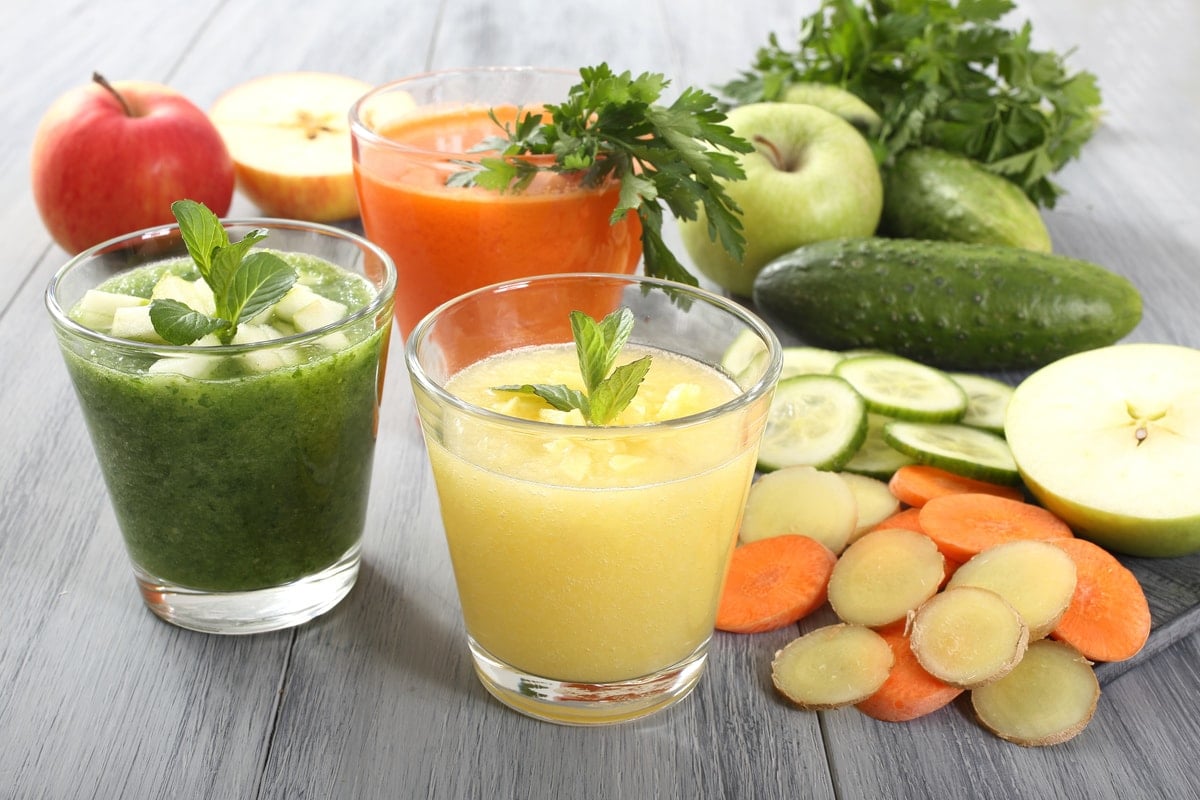
However, juice cleanse programs do have some potential downsides as well. Switching to a complete juice diet that is low-calorie can cause people to feel weak or suffer from headaches. To combat this, many people will choose a smoothie juice cleanse for their first-time cleansing.
Juicing can also make people feel fatigued and cause them to have low energy. Repeated juice cleansings that are too close together or juice cleanses that last longer than three days can have adverse effects on your health. In the end, extended juice cleansing can lead to reduced muscle mass and lower bone density. It is important to space out your juice cleanses periodically throughout the year and limit a fruit and vegetable juice cleanse to only three days at a time.
What Should I Eat Before and After a Cleanse?
Monitoring your diet both before and after your juice cleanse can help you better prepare for your three-day cleanse. Not only will preparation before and after your cleanse make you feel better during your juicing, but it will also allow your body to better transition to an all-juice diet and give you the most significant benefit from juicing. About three days before you plan to start your cleanse, be sure to eliminate any trans fat, processed foods, or artificial sweeteners and sugars. Remember that both food and drink can have artificial sugar. You'll want to trim your diet only to include healthy fats and lean protein.
Following your three-day juice cleanse, it is essential to ease your body back to eating solid foods again. Begin by introducing whole fruits and vegetables into your diet. Feel free to eat these raw, boiled, or roasted. You also want to introduce some healthy fats like nuts and avocados into your diet again. Foods rich in fiber, like celery, celery juice, and juice with plenty of juice pulp, can help ease your body back to a solid food diet.
After a few days, start introducing lean proteins like fish and chicken into your diet as you gradually work toward whole foods again. Be sure to avoid any trans fat, artificial sugar, alcohol, or caffeine for the days immediately following your beet juice cleanse. Because your digestive tract has adjusted to only processing highly concentrated minerals and vitamins, you will have a hard time processing toxins again.
Beets & Beet Juice Cleanse
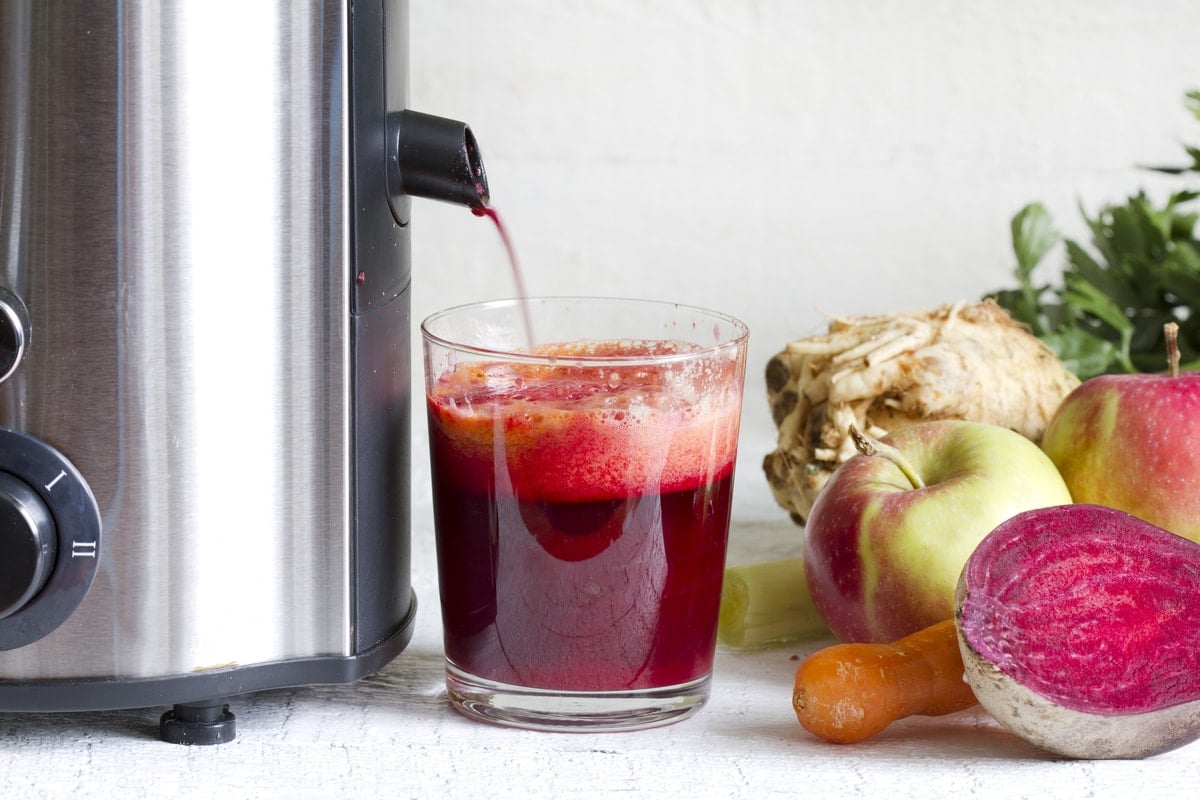
While just about any fruit and vegetable can be blended and added to a juice cleanse, adding beets for beet juice is one of the best options around. Beets have several essential health benefits that can help detoxify your body and give your organs and immune system a much-needed boost with their rich antioxidant concentration.
When it comes to superfoods, beets pretty much have it all. Not only are they low in calories, but they are packed full of valuable vitamins and minerals. Beetroot contains vitamin C, vitamin B6, potassium, magnesium, iron, and fiber. Plus, juicing beets gives you 1.7 grams of protein and only 44 calories. Aside from being healthy and packed full of vitamins, a beet juice cleanse has been known to help a range of conditions and ailments, from being a perfect food to prevent aging to battling inflammation.
Potential Beet Juice Benefits
Beets are one of the best foods to eat, and adding them to your juice is a great idea to help combat several health conditions and ailments. Some of the most popular beet juice cleanse benefits include:
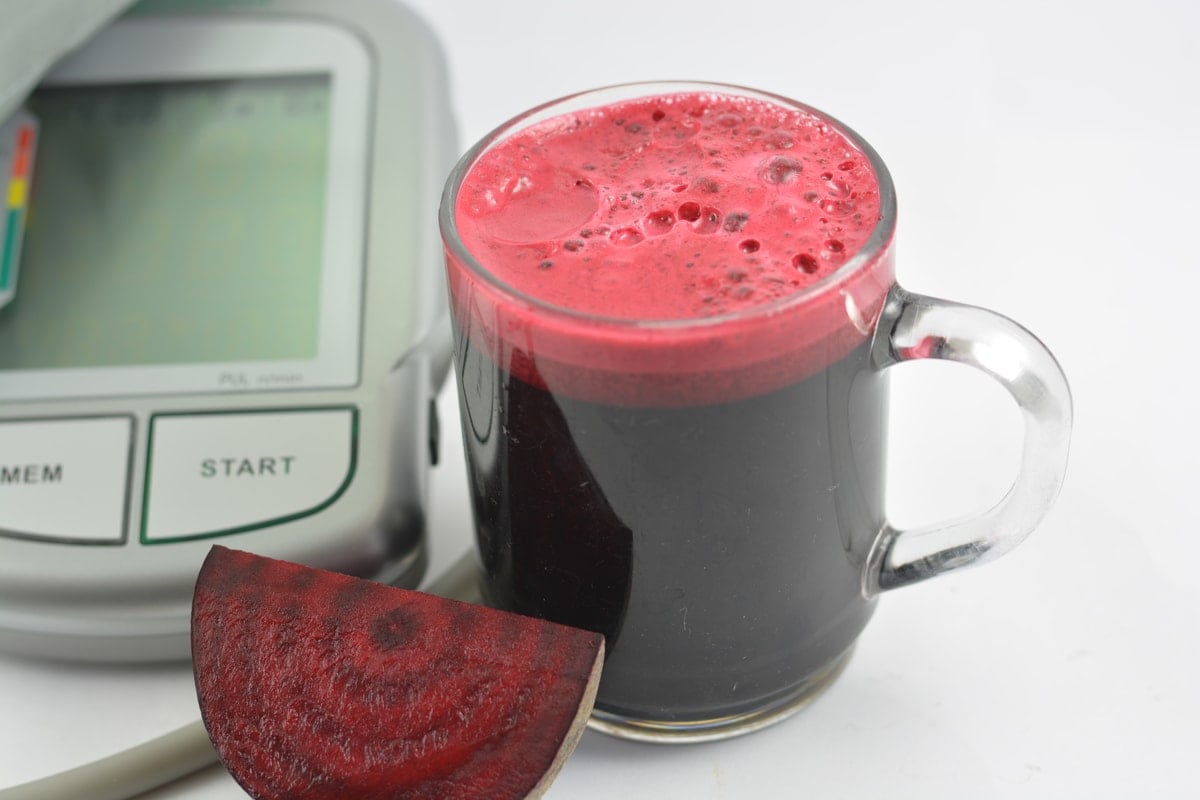
- Help Reduce Blood Pressure: Beet juice cleanses can lower your blood pressure due to the many nitrates in beets. When you eat a beet, the nitrates are converted to nitric oxide, which helps dilate the blood vessels, reducing blood pressure. Science has concluded that raw beets have more nitrates, making adding beets to your juice the perfect option.
- Help Fight Inflammation: Although the research has yet to be conclusive for humans, beets are known to reduce inflammation, which can help improve organ health. Beets have certain coloration pigments called betalains, which have anti-inflammatory properties. Beets can help improve kidney and heart health, and they can even fight liver disease by helping with a liver detox.
- Help Improve Digestive Health: Beets are packed full of fiber and can help improve your digestive health. Not only can you help to make your colon and intestines healthier, but you can also help battle digestive ailments like IBS and constipation by adding raw beets to your diet.
- Help Improve Brain Health: Those high nitrates found in beets don't just help lower your blood pressure. It turns out that high nitrates can also help improve brain function. Dilating the blood vessels can cause an increase in blood flow to the brain. Usually, the blood flow in the frontal lobe is improved, which can help with higher-level thinking, including improving your working memory and allowing you to make better decisions.
Can Beets Be Dangerous?
While there are many beneficial side effects from eating beets, people should be aware that there are potential dangers. Beets are packed full of healthy vitamins and minerals, but if you suffer from a beet allergy, your body may have an adverse reaction to ingesting this superfood. Further, if you are prone to kidney stones, you may want to steer clear of beets. This food is high in oxalic acid, which has been known to cause kidney stones. Ingesting beets can mean you are taking in large amounts of oxalates, which can quicken the pace at which kidney stones form. Those on a low-oxalate diet should steer clear of beets to prevent other potentially dangerous conditions from developing.
How Do People Eat Beets?
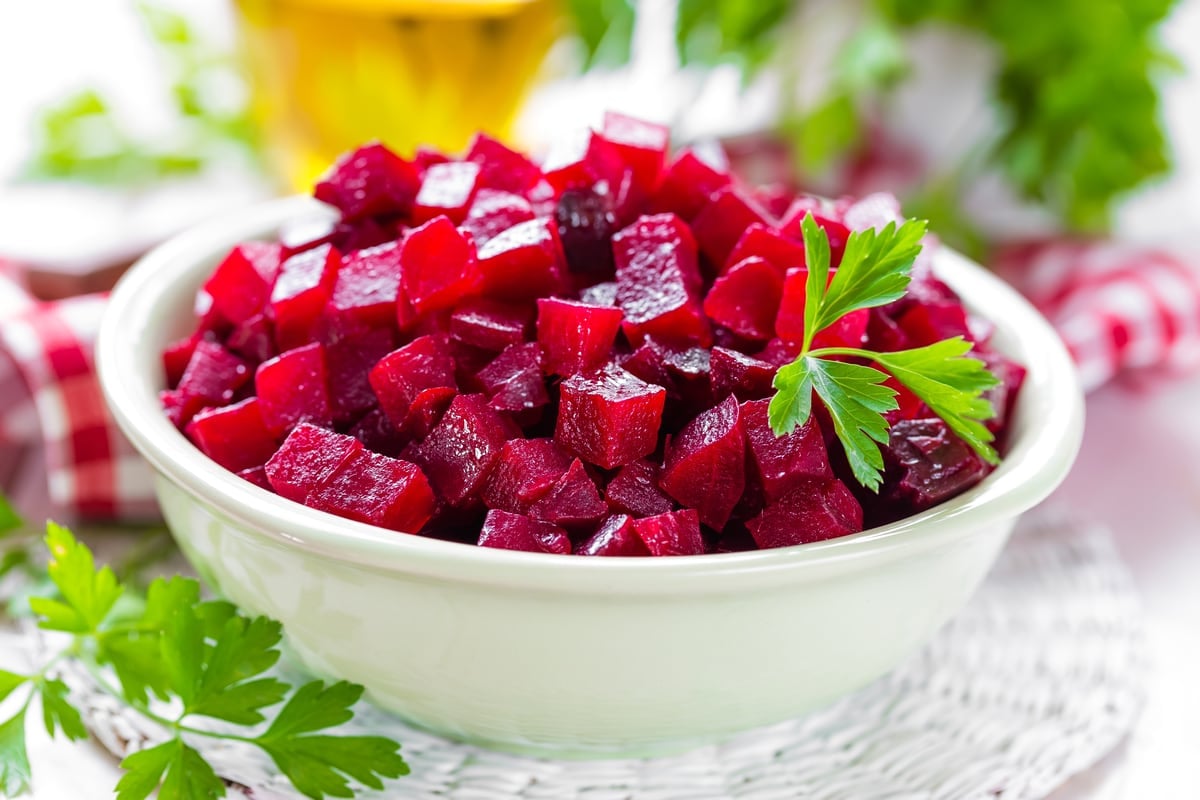
When it comes to eating beets, the options are endless. This food is an incredibly versatile food that can be eaten raw or cooked. Many people choose to eat beets raw and simply add them to a salad. Other people enjoy pickling beets to give them an interesting new flavor with the addition of apple cider vinegar or red wine vinegar. Still, others choose to roast beets and eat them as a side or topping to their favorite meal. Because of their sweet flavor, beets are commonly used as a dessert topping, adding a healthy and sweet crunch.
The majority of health benefits come from eating beets raw, so adding beets to your juice is the perfect way to take advantage of this fantastic food. Eating a raw beet extracts the most healthy vitamins and minerals and allows you to take advantage of the high nitrates found in this vegetable. Beets make a great natural sweetener for any juice and can give you substantial anti-inflammatory properties and improve organ health just by adding a simple beet to your daily fruit juice.
Best Beet Juice Recipes
Adding a beet juice recipe to your juice repertoire during a cleanse is the perfect way to get the most out of your juicing. Some of the best beet juice recipes include:
Beet Juice with Lemon
- 1 pound beets, washed and cut
- 1 large cucumber
- 1 lemon or lime (can substitute lemon juice)
- 1 1-inch knob of ginger
- 1 apple
- 1 bunch flat-leaf parsley
This fun juicing recipe is perfect for a refreshing green juice. Be sure to cut and peel the lemon and ginger before juicing. It can help to cut the fruits and vegetables into smaller pieces before adding them to your juicer. Once juiced, serve immediately. This recipe is a great way to boost immune health and improve organ health with detoxifying ingredients.
High Fiber Beetroot Juice
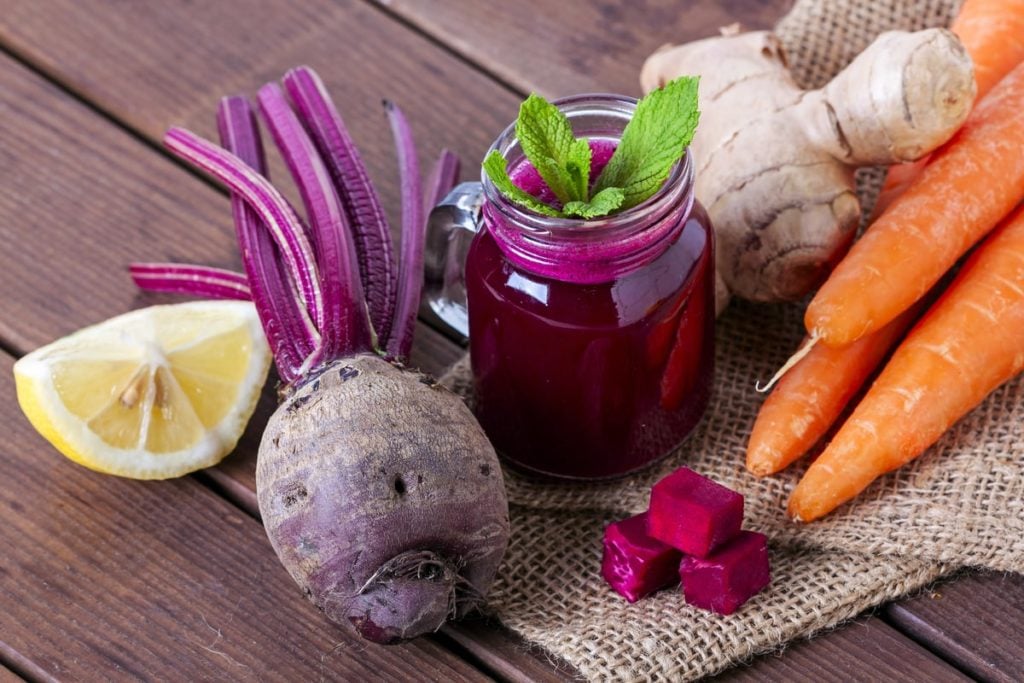
- 1 medium beet
- 3 carrots
- Unfiltered apple juice
- 1 apple
- 1 Tbsp piece of ginger
Rinse and peel the beet, carrot, and ginger. Cut fruits and vegetables into small pieces and blend the ingredient list through a centrifugal juicer. Strain the juice and let it rest for 5 minutes. Serve immediately or allow to chill. This delicious fresh beet juice recipe is extremely high in fiber and is an excellent idea for improving digestive health.
Sources:
https://www.medicalnewstoday.com/articles/323136
https://www.health.com/nutrition/cleanse-dangers
https://www.healthline.com/nutrition/benefits-of-beets
https://www.livestrong.com/article/513786-what-are-the-side-effects-of-eating-beets/

Leave a Reply